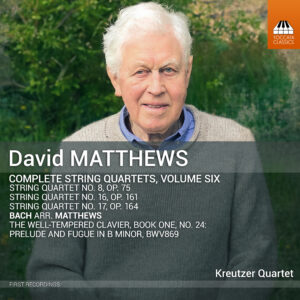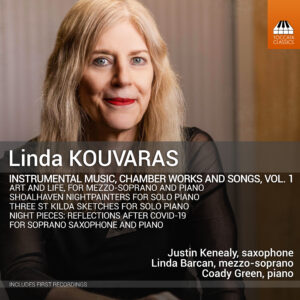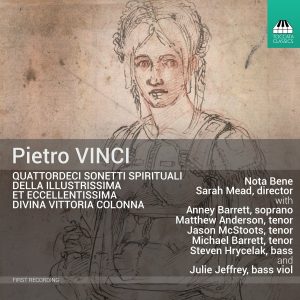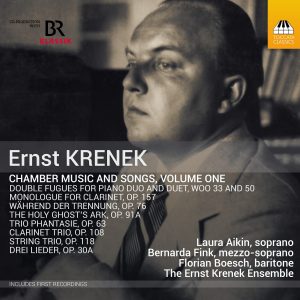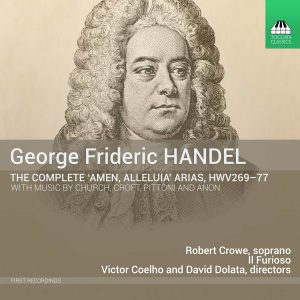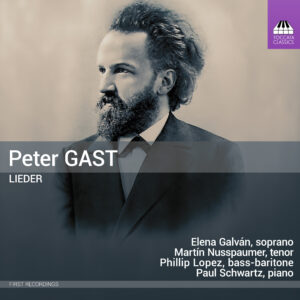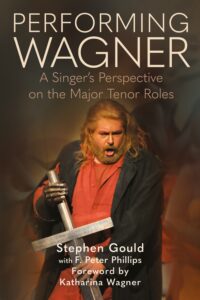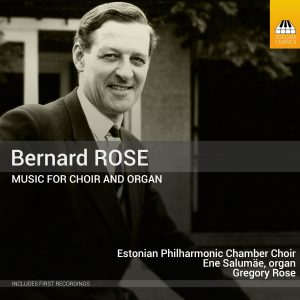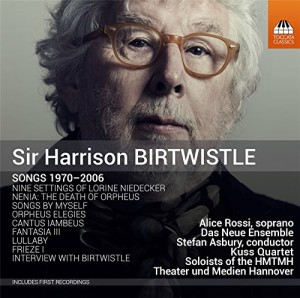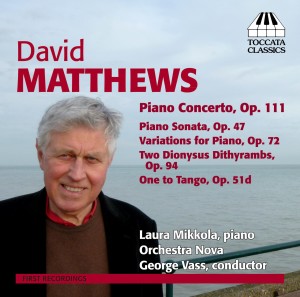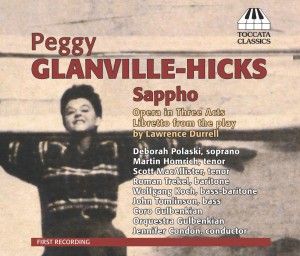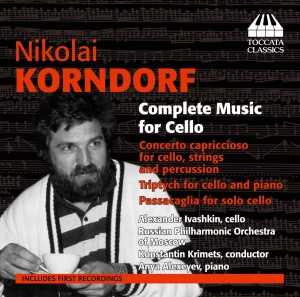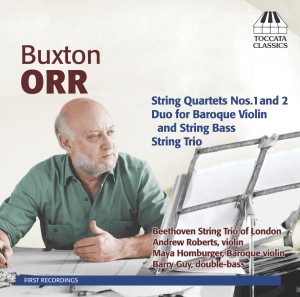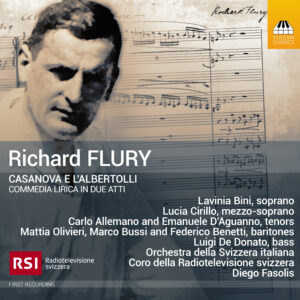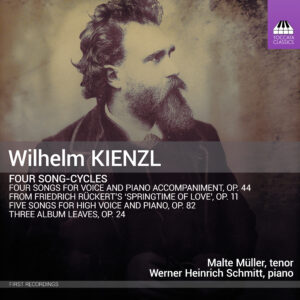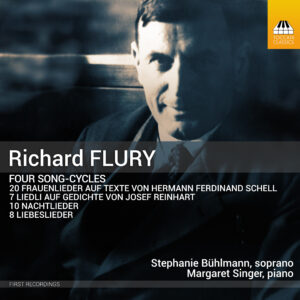Search Results for "1997 Bilbao International Vocal Competition winner Chinese tenor" – Page 3
Showing results for 1997 bulb international vocal competition winner chinese tenor 1997 tenor 1997 1997 1997
David Matthews: Complete String Quartets, Volume Six
The American critic Robert Reilly described the music on Volume One of this cycle of the complete string quartets of David Matthews (b. 1943) as ‘some of the most concentrated, penetrating writing for this medium in the past 30 years or more. It is musical thinking of the highest order and quartet writing in the great tradition of Beethoven, Bartók, Britten, and Tippett’. The three works in this sixth volume of Matthews’ string quartets cover a quarter of a century but share the same basic features, not least a mastery of counterpoint, an impassioned lyricism, a sublimated hint of folksong and occasionally a sly sense of humour, all deployed to touch something essential in the listener. Matthews begins his booklet note with this release by saluting ‘my now nearly 30-year relationship with the Kreutzer Quartet, which has been as invaluable to me as Shostakovich’s with the Beethoven Quartet, or Beethoven’s with the Schuppanzigh Quartet’.
Kreutzer Quartet
Linda Kouvaras: Instrumental Music, Chamber Works and Songs, Volume One
As with many other Australian composers, the music of Linda Kouvaras (b. 1960) has a strong sense of wide-open spaces, expressed in lyrical, elegiac melodic lines that soar over freewheeling Lisztian piano textures and atmospheric echoes of French Impressionism. In this first album of a series presenting all of her instrumental works, chamber music and songs written since 1991, she also addresses two major contemporary issues, with a duo for saxophone and piano exploring the human response to the COVID-19 pandemic and a song-cycle confronting domestic violence from a woman’s viewpoint.
Justin Kenealy, saxophone
Linda Barcan, mezzo-soprano
Coady Green, piano
Pietro VINCI: Quattordeci Sonetti Spirituali
The fourteen Sonetti Spirituali (1580) of the Sicilian-born Pietro Vinci (c. 1525–84) manifest an extraordinary blend of the secular and the religious in a narrative largely concerned with the birth, death and transfiguration of Christ. Setting Petrarchan texts by the aristocratic Vittoria Colonna (c. 1490–1547), a close friend of Michelangelo, in five parts, Vinci marries the stylised gestures of the Mannerist madrigal and the spiritual sincerity of the Latin motet, creating an unusually expressive hybrid that manages to be both texturally complex and emotionally direct.
Anney Barrett, soprano
Matthew Anderson, tenor
Jason McStoots, tenor
Michael Barrett, tenor
Steven Hrycelak, bass
Nota Bene
Joanna Blendulf, treble and bass viols
Wendy Gillespie, bass viol
Sarah Mead, alto and great bass viols
Emily Walhout, alto, bass and great bass viols with Julie Jeffrey, bass viol
Ernst Krenek: Chamber Music and Songs, Volume One
This recording of music by Ernst Krenek (1900–91) covers almost half a century of his compositions, and shows the sheer range of his creativity: from early piano fugues written for his teacher, Franz Schreker, via elegant fin de siècle Viennese lyricism to a relaxed application of Schoenberg’s dodecaphonic technique – often enlivened with a surprising degree of charm and a knowing sense of humour.
Laura Aikin, soprano (Tracks 2 – 4)
Bernarda Fink, mezzo-soprano (Track 7)
Florian Boesch, baritone (Track 7)
The Ernst Krenek Ensemble
Matthias Schorn, clarinet (Tracks 2 – 4)
Hanna Weinmeister, violin (Tracks 2 – 6)
Christian Eisenberger, violin (Tracks 2 – 4, 8 – 9)
Tatjana Masurenko, viola (Tracks 11 – 15)
Dorothea Schönwiese, cello (Tracks 2 – 6)
Anthony Spiri, piano (Tracks 1, 5 – 9, 21)
with Herbert Maderthaner, oboe (Track 10)
Lily Francis, viola (Tracks 2 – 4, 10)
Nina Tichman, piano (Tracks 1, 21)
George Frideric Handel: The ‘Amen, Alleluia’ Arias
Over a period of some twenty years, from the late 1720s, Handel composed a series of virtuoso arias using only the words ‘Amen’ and ‘Allelujah’ as his texts, probably for use in private worship. Here they receive their first recordings, set in a context of contemporary sacred song and instrumental music – and are heard in the extraordinarily dramatic timbres of a male-soprano voice.
Robert Crowe, soprano (Tracks 1, 3–6, 10–12, 14, 17, 19, 21, 22)
II Furioso
Victor Coelho, theorbo (Tracks 1, 3–9, 11, 12, 19, 21, 22)
David Dolata, theorbo (Tracks 1-6, 11–13, 19–22)
Juvenal Correa-Salas, organ
Peter Gast: Lieder
The composer Peter Gast (1854–1918) – real name Heinrich Köselitz – is best remembered as a friend and posthumous editor of Friedrich Nietzsche rather than for his own music, which was kept under lock and key in communist East Germany for half a century; only recently has it begun to be performed and recorded. ‘Il faut méditerraniser la musique’, Nietzsche argued, and Gast’s Lieder, in a reaction against Wagnerian gloom, do just that, singing of love, life, springtime, drinking and youthful ardour; even the more wistful songs have a spring in their step.
Elena Galván, soprano
Martín Nusspaumer, tenor
Phillip Lopez, bass-baritone
Paul Schwartz, piano
Performing Wagner
USE CODE BB110 at Boydell & Brewer to save £35!
A Singer’s Perspective on the Major Tenor Roles
by Stephen Gould and F. Peter Phillips
Foreword – Katharina Wagner
Introduction – F. Peter Phillips
154 Pages
Hardcover
23.4 x 15.6 cm
25 colour and 22 b/w illustrations
Bernard Rose: Music for Choir and Organ
As conductor, trainer and composer, Bernard Rose (1916–96) was one of the mainstays of English choral music in the second half of the twentieth century. His compositions occupy an honourable place within the mainstream of the cathedral tradition, being both grounded in the past and leaning gently into the future, and speaking its language of stylistic restraint and understated passion – and occasionally flaring into moment of considerable drama. This recording, sung by one of Europe’s leading vocal ensembles and conducted by the composer’s son, makes a good number of his works available for the first time.
Estonian Philharmonic Chamber Choir
Ene Salumäe, organ
Gregory Rose, conductor
Annike Lohmus, soprano
Karolina Kriis, soprano
Marianne Parna, contralto
Raul Mikson, tenor
Rainer Vilu, baritone
Sir Harrison Birtwistle: Songs 1970-2006
Instrumental and vocal techniques are intertwined in the music of Harrison Birtwistle: he often treats the voice instrumentally and his instrumental writing has vocal characteristics. Many of his works for small ensembles, with or without voices, occupy this common ground, his highly individual style juxtaposing the static and the violently dynamic and intersecting with his fondness for ritual and myth – not least a recurrent concern with the figure of Orpheus. This recording presents some of these relatively neglected pieces, recorded live in the presence of the composer, who also talks about his songs in interview.
David Matthews: Music for Piano
In his piano music, as in his symphonies and string quartets, the English composer David Matthews (b. 1943) marries the idiom of classical tradition with that of his own day. His 2009 Piano Concerto, Mozartian in spirit, contains both a tango and a blues; his Piano Sonata of 1989 includes jazz elements, and his 1997 Variations feature both blues and a homage to Beethoven. The moods range from contemplative introspection to fiery, rhythmic energy, captured here in feisty performances by the Finnish pianist Laura Mikkola, whom the composer describes as 'a marvellous exponent of my music'.
Laura Mikkola, piano
Orchestra Nova, orchestra
George Vass, conductor
Peggy Glanville-Hicks: Sappho
Sappho, the last grand opera of Australian composer Peggy Glanville-Hicks (1912-90), was written in her stone cottage on Mykonos in 1963. Never heard before this recording, Sappho reflects Glanville-Hicks' fascination with the orient and folk music, encapturing the colours of ancient Greece, with a heroic brass fanfare and epic writing for chorus, haunting woodwind solos and shimmering percussion evoking the stillness of crystal island waters. Deborah Polaski, who creates the role of the disenchanted Sappho, describes it as 'the kind of music that singers want to sing'. The libretto, based on Lawrence Durrell's verse-play, incorporates fragments of Sappho's own verse.
Deborah Polaski, soprano: Sappho
Martin Homrich, tenor: Phaon
Scott MacAllister, tenor: Pittakos
Roman Trekel, baritone: Diomedes
Wolfgang Koch, bass-baritone: Minos
Sir John Tomlinson, bass: Kreon
Jacquelyn Wagner, soprano: Chloe/Priestess
Bettina Jensen, soprano: Joy
Maria Markina, mezzo soprano: Doris
Laurence Meikle, baritone Alexandrian
Coro Gulbenkian, choir
Orquestra Gulbenkian, orchestra
Jennifer Condon, conductor
Double Disc!
Nikolai Korndorf: Complete Music for Cello
The Russian composer Nikolai Korndorf (1947-2001) was a larger-than-life character and wrote music that was similarly expansive and urgent. His three works for solo cello illustrate his unwillingness to be governed by convention. The Concerto capriccioso (1986) for cello, strings and percussion is influenced by religious ritual and rock music. The Triptych for cello and piano (1998-99) takes its starting points in folk and operatic lament, primitivist painting and Russian Orthodox prayer. And the immense Passacaglia for solo cello (1997) is an instrumental retelling of Dante's Divine Comedy, the cello taking the part of the narrator, with the cellist whistling, reciting and singing alongside the instrumental part. Alexander Ivashkin, the soloist on this recording, was a close friend of the composer — the Passacaglia was written for him — which gives his performances a unique authority.
Alexander Ivashkin, cello
Russian Philharmonic of Moscow, orchestra
Konstantin Krimets, conductor
Anya Alexeyev, piano
Buxton Orr: Chamber Music for Strings
The music of Buxton Orr, born in Glasgow in 1924, was hardly over-exposed during his lifetime but has encountered even more neglect since his death in 1997. This CD takes a step in the right direction, presenting Orr's mildly modernist, elegant and honest music in first recordings of four of his chamber works for strings.
Beethoven String Trio of London, string trio
Pavlo Beznosiuk, violin
Andrew Roberts, violin
Jeremy Williams, viola
Richard Tunnicliffe, cello
Maya Homburger, baroque violin
Barry Guy, double-bass
Richard Flury: Casanova e l’Albertolli, Commedia Lirica in Due Atti
Two traditions coalesce in Casanova e l’Albertolli (1937), the third of the four operas by the Swiss late-Romantic composer Richard Flury (1896–1967): Italian bel canto and the Swiss Festspiel – high art and popular culture. Styled a ‘Commedia lirica’, it invests the comic intrigue onstage with sweeping melodies of Puccinian richness, combining them with choruses based on Ticino folksong – it even has a yodelling chorus – in an engaging hybrid that deserves to be far better known. At the end, of course, evil is banished and love rewarded, but the entire score is dappled with happy inspirations that will bring a smile to the listener’s lips.
Carlo Allemano, tenor
Lavinia Bini, soprano
Mattia Olivieri, baritone
Marco Bussi, baritone
Lucia Cirillo, mezzo-soprano
Luigi De Donato, basso buffo
Federico Benetti, baritone
Emanuele D’Aguanno, tenor
Coro della Radiotelevisione Svizzera
Orchestra della Svizzera Italiana
Diego Fasolis, conductor
Wilhelm Kienzl: Four Song-Cycles
The Austrian composer Wilhelm Kienzl (1857–1941) – also a pianist, conductor, musicologist and writer on music – enjoyed the esteem of his contemporaries particularly for his vocal music. But his star has waned over the past century, and only a handful of his 238 songs have had recent recordings. In style they range from the simple and folk-like to the dramatic and quasi-operatic; their harmonic world likewise embraces both the diatonic and chromatic, with hints of the influence of Schubert, Schumann, Brahms, Wagner and a foretaste of later composers. The four song-cycles recorded here treat the grand themes of life: love, loss, death and man’s interaction with nature.
Malte Müller, tenor
Werner Heinrich Schmitt, piano
Richard Flury: Four Song-Cycles
The output of Richard Flury (1896-1967), one of Switzerland’s most prolific composers, ranges from operas and ballets to symphonies, instrumental concertos, sacred and secular vocal works, chamber music and no fewer than 181 songs with piano accompaniment. These four song-cycles, written between 1920 and 1946, contain 45 of them, their concision nonetheless embracing an expansive, Romantic style of which Schumann himself might have approved. The prevailing mood is one of an open-hearted sincerity, occasionally enlivened by a dash of humour.
Stephanie Bühlmann, soprano
Margaret Singer, piano
Stay In the Know
JOIN THE TOCCATA NEWSLETTER
"*" indicates required fields
By visiting our site, you agree to our privacy policy regarding cookies, tracking statistics, etc.
